This Startup’s Tech Has Helped 20+ Industrial Units Save 1 Billion Litres of Water
"It is imperative that people understand that the water they are getting to use in abundance is at the cost of someone who is struggling to get access to it,” says the founder.
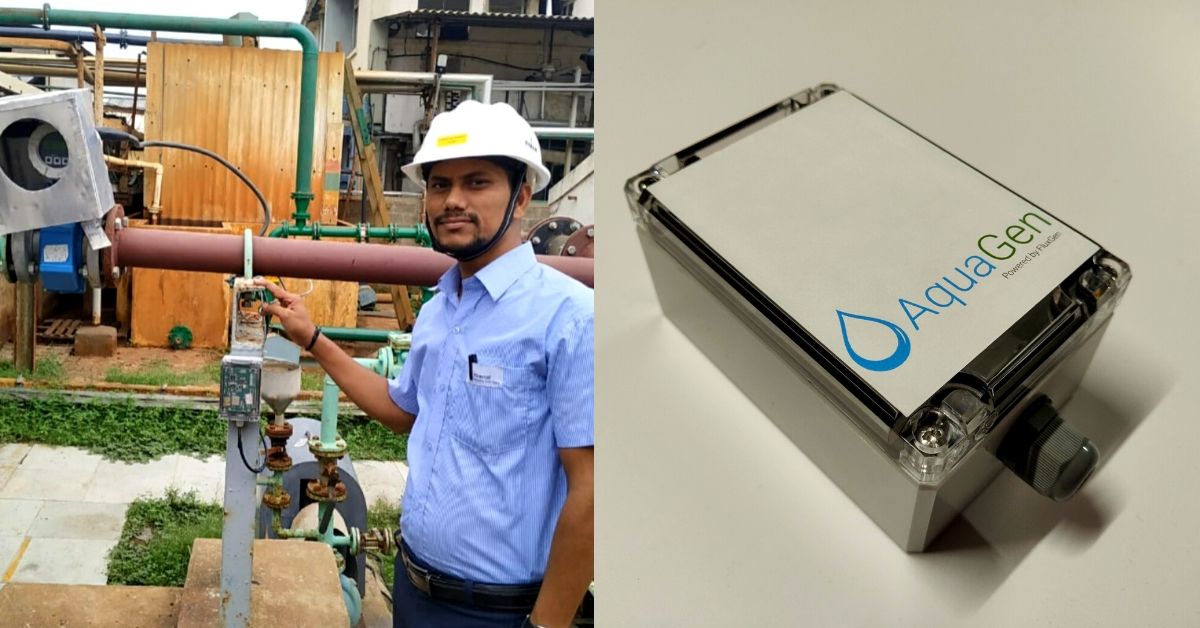
So here’s a fun fact about your favourite pair of blue jeans. It took about 7,600 litres of water to produce it. Not really a fun fact, actually, especially when you take into account that it takes 22,500 litres of water, on average, to produce 1 kg of jeans according to a research by the Water Footprint Network. This number is even higher in India due to the inefficient use of water and its contamination with pesticides.
Want to conserve the amount of water you use? Check out these water-saving products from Karnival that’ll help you do so!
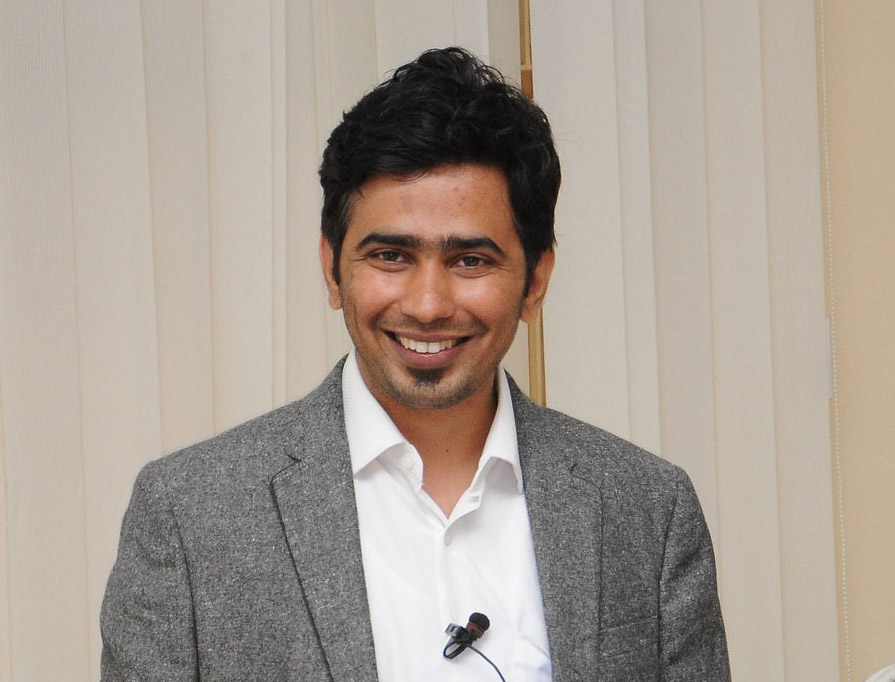
“Industries must track their water consumption and also take corrective actions to conserve water. This was the idea behind starting FluxGen; to plug such holes. Moreover, we use artificial intelligence to track leaks in the systems,” says Ganesh Shankar, the 36-year-old founder of FluxGen Technologies.
The Bengaluru-based startup uses IoT to provide water monitoring solutions to different industries. Founded in 2011, FluxGen came up with AquaGen —a water management system in 2016.
Industries across the globe drain the world’s water reserves. The World Water Development Report 2019, says that by 2050, the demand for this stuff of life is going to exceed 30 per cent of the current supply.
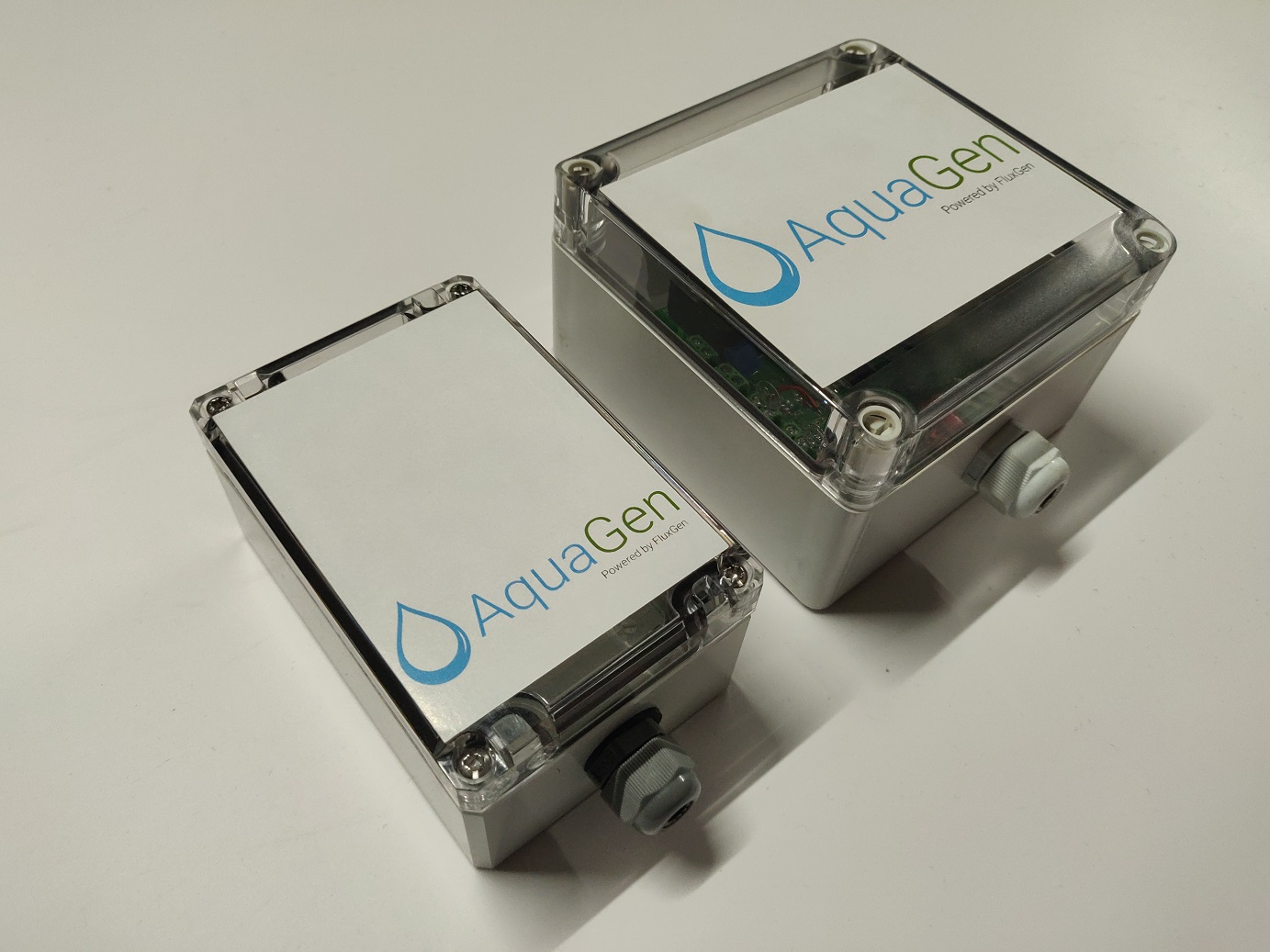
Currently, 20+ industrial units like food processing plants, manufacturing plants and even industrial towns are using AquaGen to monitor and analyse their water consumption, leakage and excessive usage. Since 2016, the startup has conserved around one billion litres of water!
How the Technology Works
“In the dairy industry, Cleaning-In-Place (CIP) is an integral process which requires a lot of water, and we repeat this procedure every 3 to 4 hours,” says C Ayyanar, the Maintenance Incharge at Winner Diary in Puducherry.
CIP removes the built-up butterfat or protein from the machines and sanitises them.
On average, the Dairy utilised almost 90,000 litres of water daily day for CIP! The management decided to install FluxGen’s AquaGen over eight months ago to reduce the facility’s water consumption.
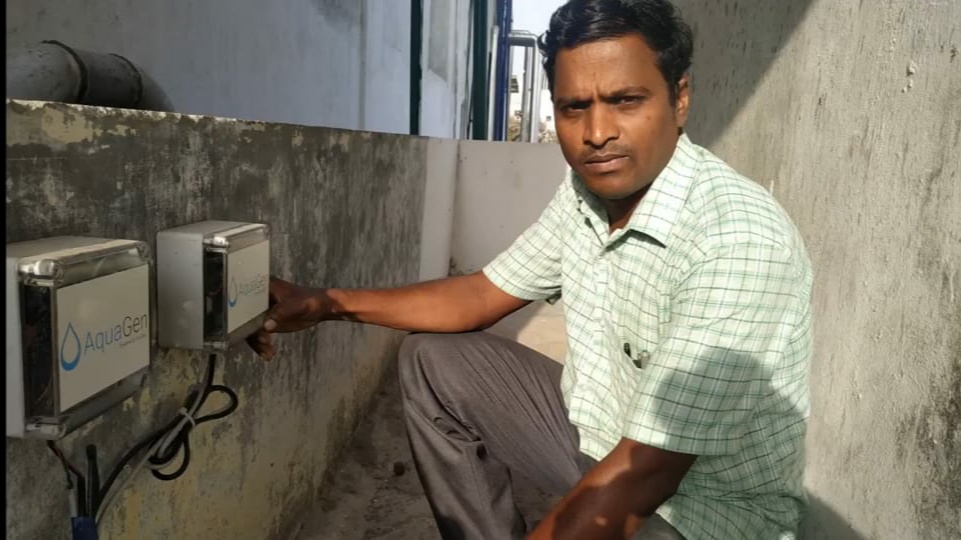
“After installing AquaGen, we have cut down our consumption by 30,000 litres in a day. We’ve also been able to reduce our electricity costs by 15 per cent. This has been possible as we can monitor our consumption patterns daily,” says C Ayyanar.
The idea for AquaGen
A Titan Jewelery Division (Tanishq) project led to the birth of AquaGen in 2016. “Tanishq asked us to develop a solution where they could monitor their water consumption patterns every five mins. It took us about six months to develop the solution after which we were able to provide solutions,” says Ganesh.
In addition to the other features of the technology, AquaGen eliminates the need to monitor water meter readings manually.
FluxGen’s device helps in monitoring real-time flow, level, pressure and energy that the water pump and the recycling equipment consumes. With AI and Internet of Things Technology (IIoT) at the core of AquaGen, you can monitor its functions via the machine and the mobile application.
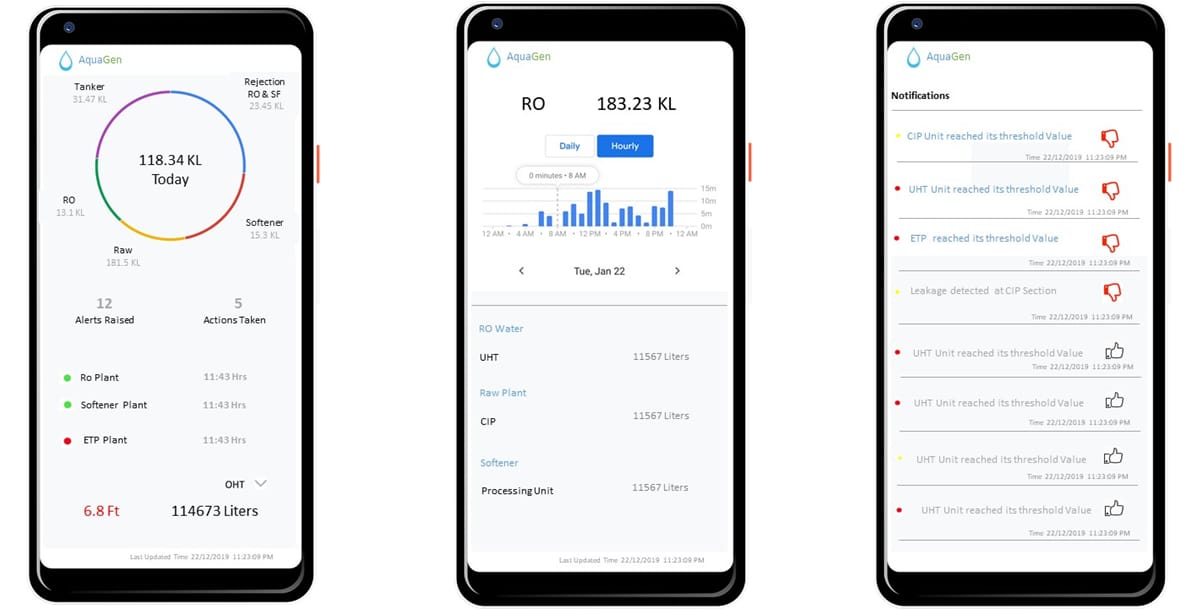
“We have developed the tech stack by ourselves, which includes the IoT modules, cloud software, web application, mobile application, machine learning algorithms. We procure the water flow meter, water level sensors and other sensors from a third party,” explains Ganesh.
The cost of the solution depends on the customer requirements such as the water pipe diameter, tank size, number of consumption points and storage points, etc.
The founder and his story
Since Ganesh came from a family of teachers, he aspired to become one himself. “I had absolutely no business background. My father, uncles and most of my relatives are teachers,” he shares.
In 2003, while pursuing a degree in Telecommunication Engineering from RV College of Engineering, Bengaluru, Ganesh started a small coaching centre where he taught Electronic circuits to about 100 students. Post-college, he wanted to gain experience of working at a startup and thus, joined NextFirst Engineering Technologies where he learnt how to build devices and systems.
In the year 2006, he got into IISc for research in the ion-trap mass spectrometer. In 2008, he went on to work with General Electric Company (GE), a well known American multinational conglomerate.
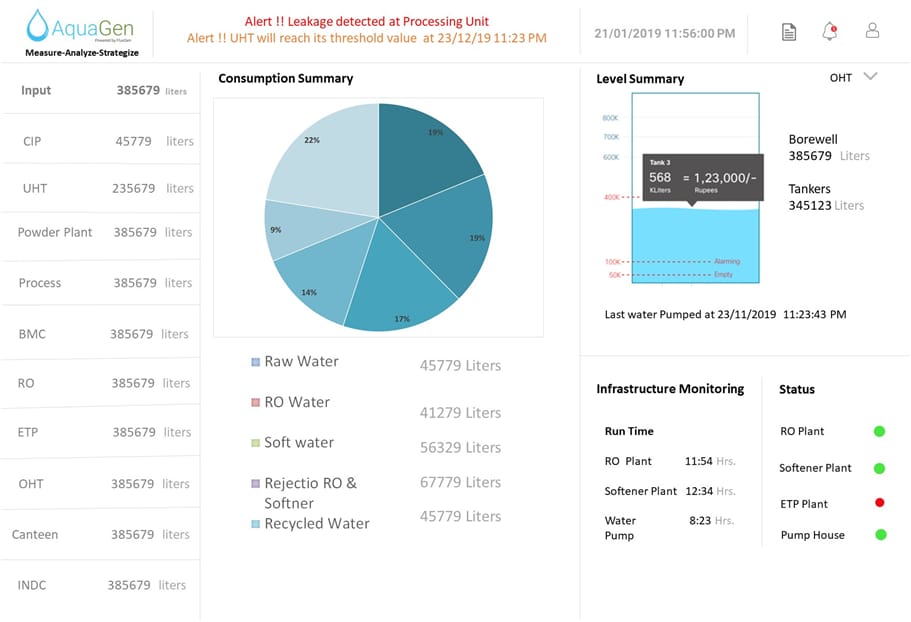
“After working there for two years again, I felt like I wasn’t fully making use of my education. When I wrote my resignation letter, I even mentioned that I wanted to make eco-friendly solutions for the common man,” he smiles.
But, at the time, he didn’t have any experience in sustainable energy. So, he decided to join SELCO India, a solar energy company. During the six months he worked there, Ganesh travelled to places like Ujire in Dakshina Kannada district in Karnataka.
“This experience really gave me a glimpse of on-ground problems which I was not fully aware of,” he says.
Currently, in addition to heading the startup, Ganesh is a part of the visiting faculty at Centre for Continuing Education at IISc. It has been slightly over three years since he started teaching here. He area of expertise is data science in the field of clean tech and agri tech.
Challenges and Impact
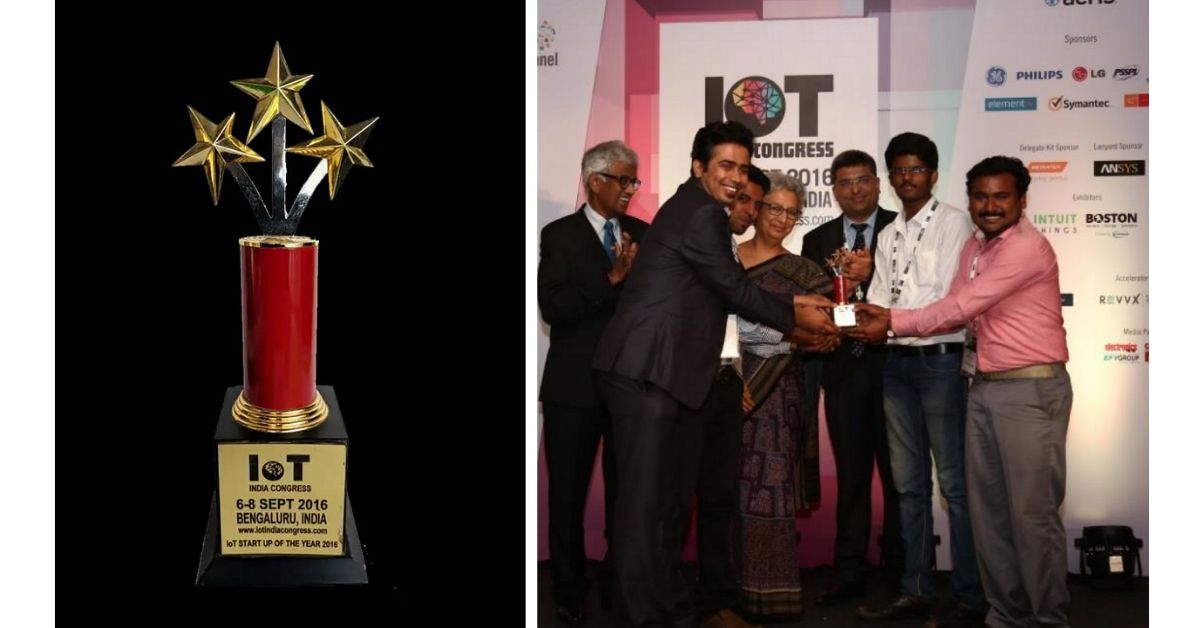
Suresh Venkatachalam works as a Project Manager at a textile company—Jay Jay Mills India Pvt. Ltd based in Perundurai in Tamil Nadu. This textile company has about 2,400 employees who live within the factory complex in three hostels.
“We wanted the monitoring system for domestic purposes to monitor our water use. Before, our staff manually noted down the readings and calculated them. But now, with the mobile application, we get quick information and can regulate the water. We also have comparison data which helps us look at our consumption patterns,” says Suresh.
Though the results of AquaGen are showing positive trends in water conservation and responsible water management, the startup’s journey so far has been riddled with several challenges. Ganesh informs that people look at the solution more as a means to reduce their expenditure on water and not something that can help in water conservation.
“It was a challenge to convince the customers to buy our solution to manage their water costs. Though water is the lifeline of our existence, it is not valued enough by many – it is also because the end-user does not directly bear the actual cost of water,” he explains.
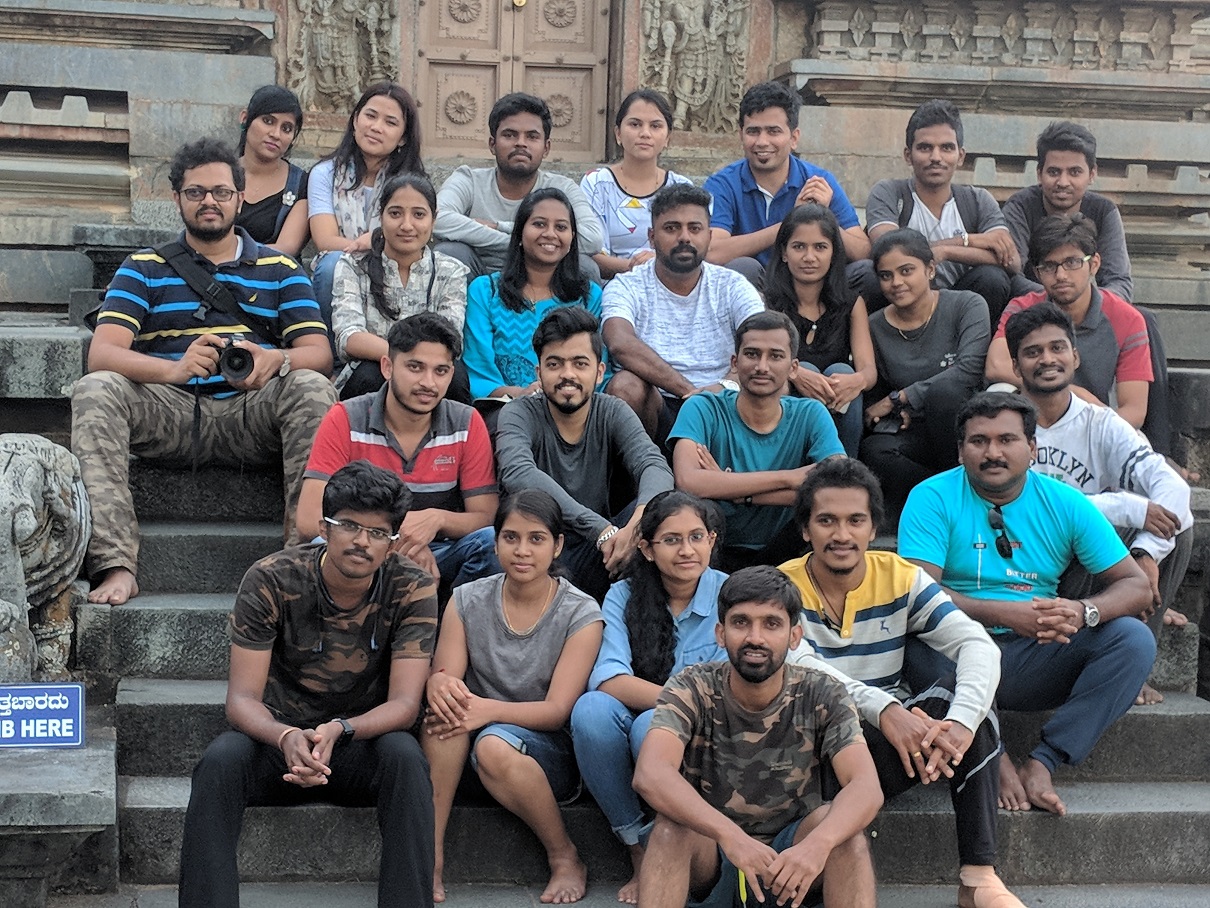
However, after the challenges, came the recognition. IESA declared FluxGen as ‘The Most Promising Startup of the year 2019’ at the Vision Summit. It also received the Smart City Award for Social Impact at Smart City Expo, Jaipur India 2018.
The startup has been supported by NASSCOM: Centre of Excellence – Data Science & Artificial Intelligence, Cisco Launchpad, Quantela-Berkeley Innovation group, EO- Cares and AxelerateNOW.
FluxGen currently operates in all South Indian states and want to expand to Gujarat, Rajasthan, MP and UP by next year.
“My aspiration is to make industries water positive which primarily means reducing and recycling the water they use (zero liquid discharge) and harvest rainwater. People must understand that the water they are using in abundance is at the cost of someone who is struggling to get access to it,” he says signing off.
Know more about the ATL Tinkering Innovation Marathon here.

(Edited by Saiqua Sultan)
Like this story? Or have something to share?
Write to us: [email protected]
Connect with us on Facebook and Twitter.
If you found our stories insightful, informative, or even just enjoyable, we invite you to consider making a voluntary payment to support the work we do at The Better India. Your contribution helps us continue producing quality content that educates, inspires, and drives positive change.
Choose one of the payment options below for your contribution-
By paying for the stories you value, you directly contribute to sustaining our efforts focused on making a difference in the world. Together, let’s ensure that impactful stories continue to be told and shared, enriching lives and communities alike.
Thank you for your support. Here are some frequently asked questions you might find helpful to know why you are contributing?


This story made me
-
97
-
121
-
89
-
167











